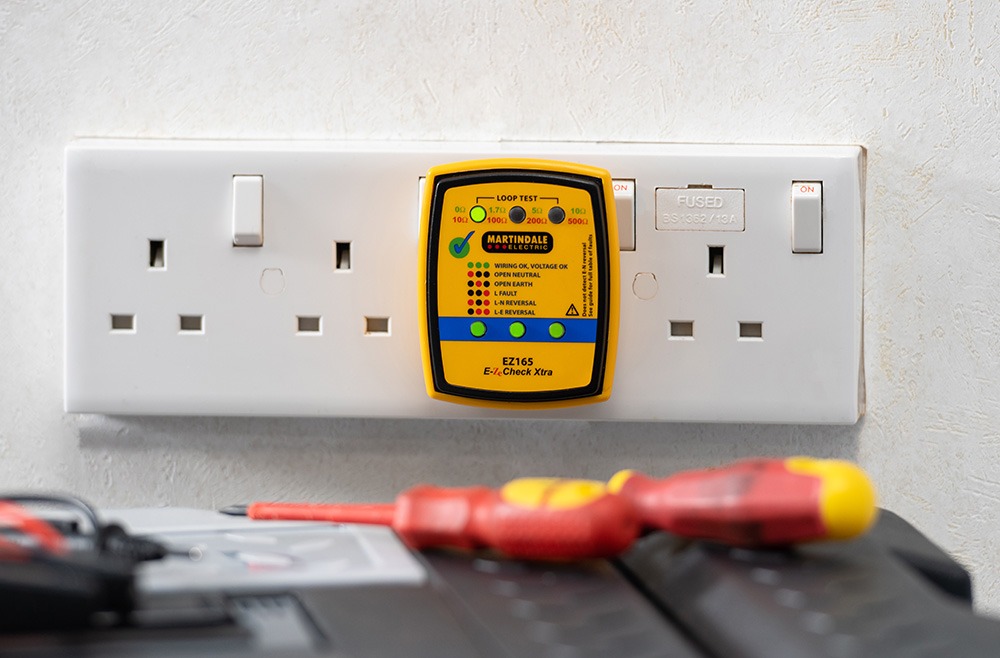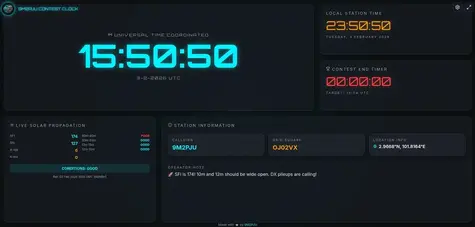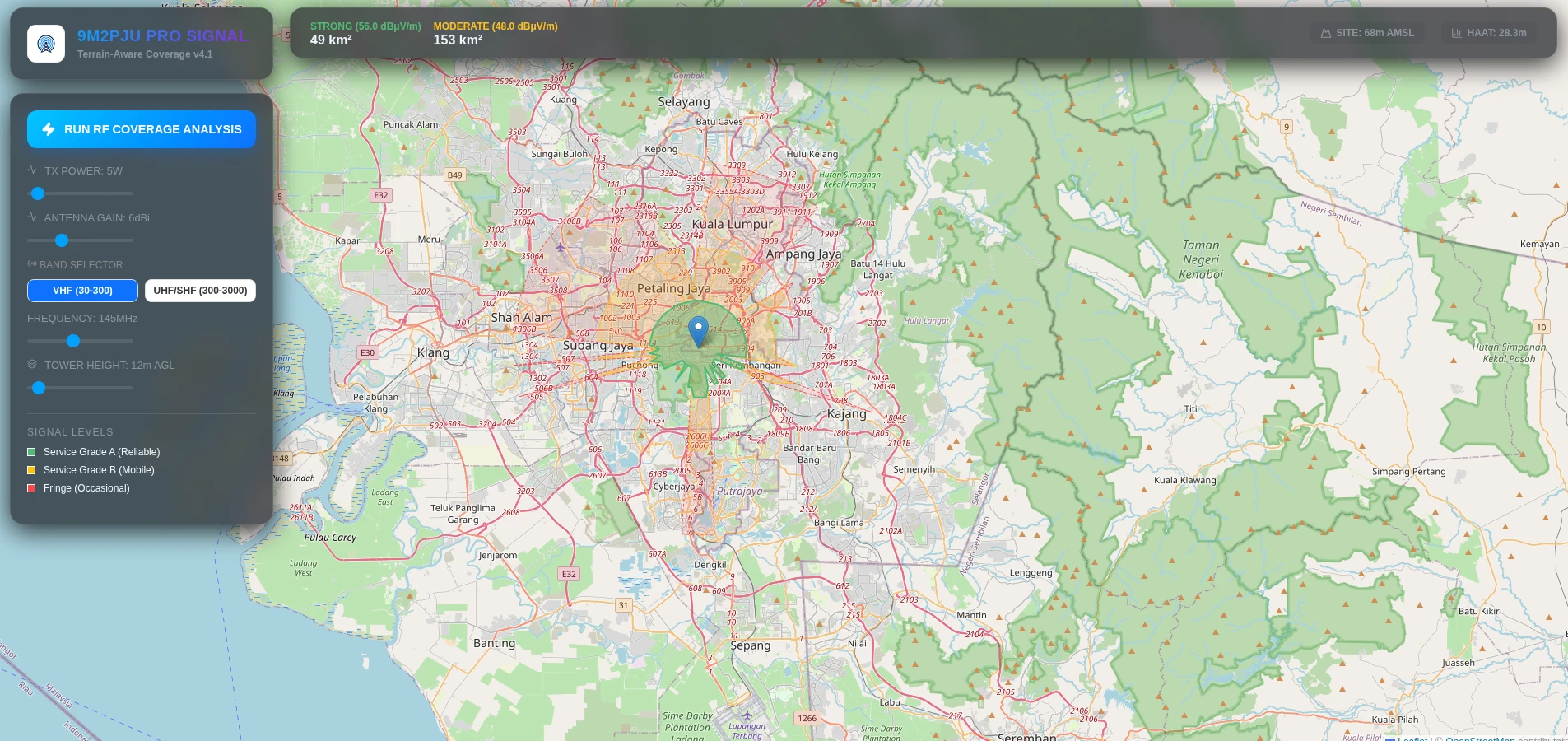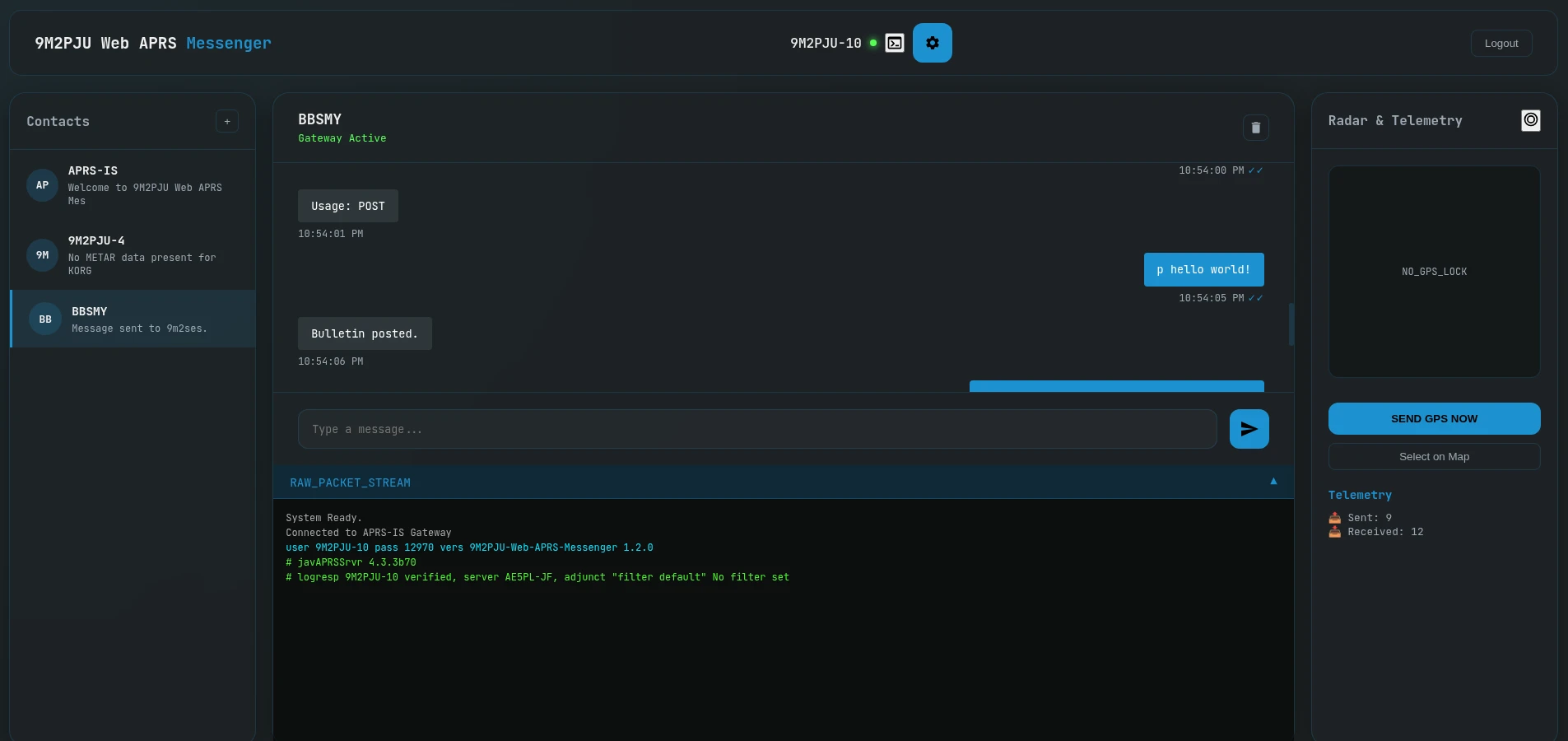amateur radio
electrical
ham radio
safety
test
#AmateurRadio, #Amprobe, #DIYElectronics, #ElectricalMaintenance, #ElectricalSafety, #ElectricalTesting, #ElectricalTools, #Fluke, #GFCI, #GroundFaultProtection, #HamRadio, #KleinTools, #MartindaleElectric, #radioshack, #RCD, #ResidualCurrentDevice, #SafetyFirst, #SocketTester, #SperryInstruments
9M2PJU
0 Comments
Electrical Socket Testers: How They Work, Top Brands, and Why Hams Need One
Electrical socket testers are small, powerful tools that ensure your outlets are safe and properly wired. Whether you’re a professional electrician, a DIY enthusiast, or an amateur radio operator (aka “ham”), these devices are essential for preventing electrical hazards, protecting equipment, and maintaining compliance with safety standards. In this guide, we’ll explore how socket testers work, highlight the top brands, and explain why every amateur radio operator should have one in their radio shack. Plus, we’ll answer common questions like GFCI vs. RCD socket testers and share some fun facts along the way!
What is an Electrical Socket Tester?
An electrical socket tester is a handheld device designed to check the wiring of electrical outlets. It quickly identifies common issues like reversed polarity, open grounds, and missing connections. These testers are affordable, easy to use, and provide instant feedback, making them a must-have tool for anyone working with electrical systems.
How Does a Socket Tester Work?
Using a socket tester is simple and straightforward. Here’s how it works:
- Plug It In: Insert the socket tester into the outlet you want to test.
- Check the Lights: Most testers have LED lights that illuminate in specific patterns to indicate the outlet’s status.
- Interpret the Results: Compare the light pattern to the chart on the tester or in the user manual to determine if the outlet is wired correctly or if there’s a fault.
Common Light Patterns and What They Mean
- Correct Wiring: All lights are green, or the pattern matches the “correct” indication.
- Reversed Polarity: The live and neutral wires are swapped.
- Open Ground: The ground wire is missing or not connected.
- Open Neutral: The neutral wire is missing or not connected.
- Open Live: The live wire is missing or not connected.
Advanced Features in Modern Socket Testers
Some high-end models include:
- GFCI/RCD Testing: Checks if safety devices like GFCIs (Ground Fault Circuit Interrupters) or RCDs (Residual Current Devices) are functioning correctly.
- Voltage Display: Shows the exact voltage of the outlet.
- Frequency Measurement: Displays the frequency of the electrical supply.
- Bluetooth Connectivity: Allows you to view test results on your smartphone via an app.
GFCI vs. RCD Socket Testers: What’s the Difference?
GFCI (Ground Fault Circuit Interrupter)
- Region: Primarily used in North America.
- Function: Protects against ground faults, which occur when electrical current leaks from a circuit to the ground.
- Operation: Monitors the current flowing from hot to neutral. If an imbalance is detected, the GFCI trips and cuts off power within milliseconds.
- Testing: GFCI socket testers simulate a ground fault to ensure the outlet trips correctly.
RCD (Residual Current Device)
- Region: Commonly used in Europe, Australia, and other regions.
- Function: Protects against earth leakage currents, which can cause electric shocks or fires.
- Operation: Monitors the current flowing in the live and neutral wires. If an imbalance is detected, the RCD trips and cuts off power.
- Testing: RCD socket testers simulate a leakage current to ensure the device trips within the required time.
Key Differences
- Sensitivity: GFCIs trip at lower current imbalances (4-6 mA) compared to RCDs (30 mA).
- Application: GFCIs are often used in high-risk areas like bathrooms and kitchens, while RCDs provide broader protection in residential and commercial settings.
- Testing Methods: GFCI testers simulate a ground fault, while RCD testers simulate a leakage current.
Top Brands of Socket Testers
When it comes to socket testers, quality matters. Here are the top brands trusted by professionals and enthusiasts:
- Klein Tools: Known for rugged and reliable tools, Klein offers socket testers with GFCI testing and voltage detection.
- Fluke: A leader in electrical testing equipment, Fluke produces high-precision testers with advanced diagnostic capabilities.
- Amprobe: Praised for accuracy and durability, Amprobe’s testers are a favorite among electricians.
- Sperry Instruments: Affordable yet reliable, Sperry’s testers feature clear LED indicators and easy-to-read displays.
- Martindale Electric: A UK-based brand renowned for high-quality testers, including models with voltage indicators and frequency measurement.
Why Amateur Radio Operators Need a Socket Tester
Amateur radio operators rely on a variety of electrical equipment to communicate globally. From transceivers and amplifiers to computers and power supplies, a radio shack is filled with devices that depend on a safe and reliable power supply. Here’s why every ham should have a socket tester:
1. Ensure Safe Power Supply
Faulty wiring can lead to equipment damage, electrical fires, or personal injury. A socket tester helps verify that your outlets are wired correctly and safely.
2. Protect Expensive Equipment
Amateur radio gear can be costly. A simple wiring fault, like reversed polarity or an open ground, can damage sensitive electronics. A socket tester helps avoid costly repairs.
3. Prevent Interference
Poorly wired outlets can introduce electrical noise or interference, degrading signal quality. A socket tester ensures your power supply is clean and free from faults.
4. Compliance with Electrical Codes
Many hams set up their shacks in home workshops or garages, where wiring may not meet code. A socket tester helps identify and correct issues to ensure compliance.
5. Peace of Mind
Knowing your outlets are safe and properly wired allows you to focus on operating your radio equipment without worrying about hazards.
6. Portable and Easy to Use
Socket testers are compact and easy to carry, making them ideal for testing outlets in your radio shack or at field operating locations.
7. Troubleshooting Tool
If you experience issues with your radio equipment, a socket tester can help determine if the problem lies with the power supply.
How to Use a Socket Tester in Your Radio Shack
- Test All Outlets: Before plugging in any equipment, test every outlet in your radio shack to ensure it’s wired correctly.
- Check GFCI/RCD Outlets: If your shack has GFCI or RCD outlets, use a tester with the appropriate functionality to verify they’re working properly.
- Monitor Voltage: Use a tester with a voltage display to ensure your outlets are providing the correct voltage for your equipment.
- Regular Maintenance: Periodically retest your outlets, especially if you add new equipment or make changes to your electrical setup.
Fun Facts About Socket Testers
- Origins: The first socket testers were developed in the mid-20th century as a simple way for electricians to verify outlet wiring.
- LED Revolution: Early testers used incandescent bulbs, but LEDs made them more energy-efficient and durable.
- Global Variations: Socket testers are designed for different plug types and voltage standards worldwide.
- Life-Saving Tool: Socket testers have prevented countless electrical accidents by identifying faulty wiring before it leads to shocks or fires.
- Pocket-Sized Safety: Despite their small size, socket testers are powerful diagnostic tools that can detect even subtle wiring issues.
Conclusion
An electrical socket tester is a small but essential tool for ensuring electrical safety. Whether you’re a professional electrician, a DIY enthusiast, or an amateur radio operator, this device is a must-have for your toolkit. With its ability to quickly identify wiring faults, protect equipment, and prevent accidents, a socket tester is invaluable for anyone working with electrical systems.
For amateur radio operators, a socket tester is particularly important. It ensures a safe and reliable power supply for your radio equipment, protects your investment, and helps you avoid interference and compliance issues. So, if you don’t already have one in your radio shack, it’s time to add this indispensable tool to your collection.
Remember, electrical safety is no joke—and with a socket tester, you can operate your radio gear with confidence, knowing that your power supply is in good hands. Stay safe, stay connected, and happy transmitting!







Post Comment